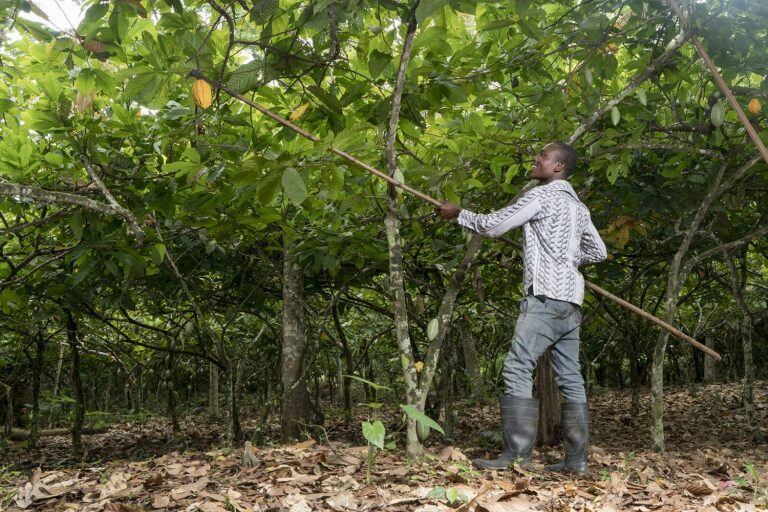A new initiative bringing together public sector, private sector and civil society organizations has been launched in Ghana to support an environmentally sustainable future for its cocoa sector.
ASASE, which also means “land" in the local Ghanaian language Twi, is a €2.3m ($2.79m) project co-funded by the Netherlands Enterprise Agency (RVO) as part of the Sustainable Development Goals Partnership (SDGP).
A spokesperson for the new project said it intends to work with 5,000 farmers in two of Ghana’s main cocoa producing areas: the Ashanti and Eastern regions.
Landscape approach
Using a landscape approach, the ASASE project moves away from the traditional focus on the direct supply chain and instead intervenes by working together with cocoa farmers, their rural communities and in local forest remnants. Farmers will receive 'sensitizations' and trainings on agroforestry practices, as well as land and tree tenure documentation to improve the long-term security of their farms.
Latest figures from ASASE suggest 800,000 households across Ghana (3.6 million people) rely on cocoa for their livelihoods, but the country is at high risk of deforestation, making the commitment to prevent further conversion of any land for cocoa production imperative.
The project will be building on the existing sector-wide Cocoa and Forest Initiative’s (CFI) efforts to end deforestation and restore forest areas.
From the public sector, the Ghanaian Ministry of Lands and Natural Resources (MLNR) will be working to ensure the project aligns with national policy and will use the outcomes to develop future policies.
Private sector involvement is provided by Meridia, West-Africa's land rights specialist, which will be leading the provision of land and tree tenure rights for farmers.
Commodity trading house Export Trading Group (ETG) and its associated sustainability foundation, Beyond Beans (formerly Cocoanect), will also bring to the project over 25 years of experience working in sustainability in the cocoa sector.

